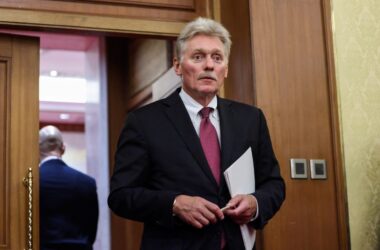Germany’s Justice Minister says Poland denied extradition of Ukrainian suspect Volodymyr Z., the alleged Nord Stream saboteur, and Foreign Minister praised the Polish court’s decision in Ankara.
Polish Court Denies Extradition
On Friday, a Polish court rejected Germany’s request to extradite Ukrainian suspect Volodymyr Z., alleged to have participated in the Nord Stream pipeline explosions. Judge Dariusz Lubowski ruled that the extradition application lacked sufficient evidence and described the German request as “unworthy of attention”. The court ordered the release of the suspect, who had been detained since 30 September and had an international arrest warrant issued in Germany.
German Justice Minister Declines to Comment
The German Ministry of Justice refused to comment on the Polish decision, citing the separation of powers. This stance was reaffirmed during a brief exchange with journalists in Ankara.
Foreign Minister Upholds Respect for Polish Ruling
German Foreign Minister Johann Wadephul, speaking to journalists during a visit to Ankara, said he respected the Polish court’s decision and noted that courts in other countries are not subject to executive interference.
Schröder Defends Nord Stream in Parliament
On 17 October in Schwerin, former German Chancellor and current Nord Stream 2 board chief Gerhard Schröder defended the pipeline before a parliamentary inquiry commission of Mecklenburg‑Vorpommern. He said the goal was to detach Germany’s energy supply from nuclear and coal and to secure natural gas from Russia after “reasonable assessments”. Schröder dismissed opposition from Poland as “not of interest” and said the pipeline was designed to avoid intervention from other countries.
Climate Foundation and Secret Transactions
Schröder referred to the former economic cooperation with Russia as a “peace policy” and insisted it should still bear that name today. He also justified the creation of a climate‑protecting foundation in 2021 by Mecklenburg‑Vorpommern. The foundation was intended to secure the completion of Nord Stream 2 through clandestine transactions, claiming that companies involved were supposedly threatened by US sanctions. It received €20 million from the Nord Stream consortium and, according to Schröder, “served the continuation of the project without fear of US sanctions.”
Schröder’s Hearing and Response
Schröder was called to testify in relation to his seven former positions, including German Chancellor, long‑time Nord Stream AG board chair, and Nord Stream 2 AG board president. He was compelled to speak via videoconference from Hanover due to poor health. He offered no specific answers to lawmakers’ questions, describing some as “absurd” or “irrelevant”. He denied any influence on US foreign policy, stating, “If it were the other way round, US foreign policy would look different.”










